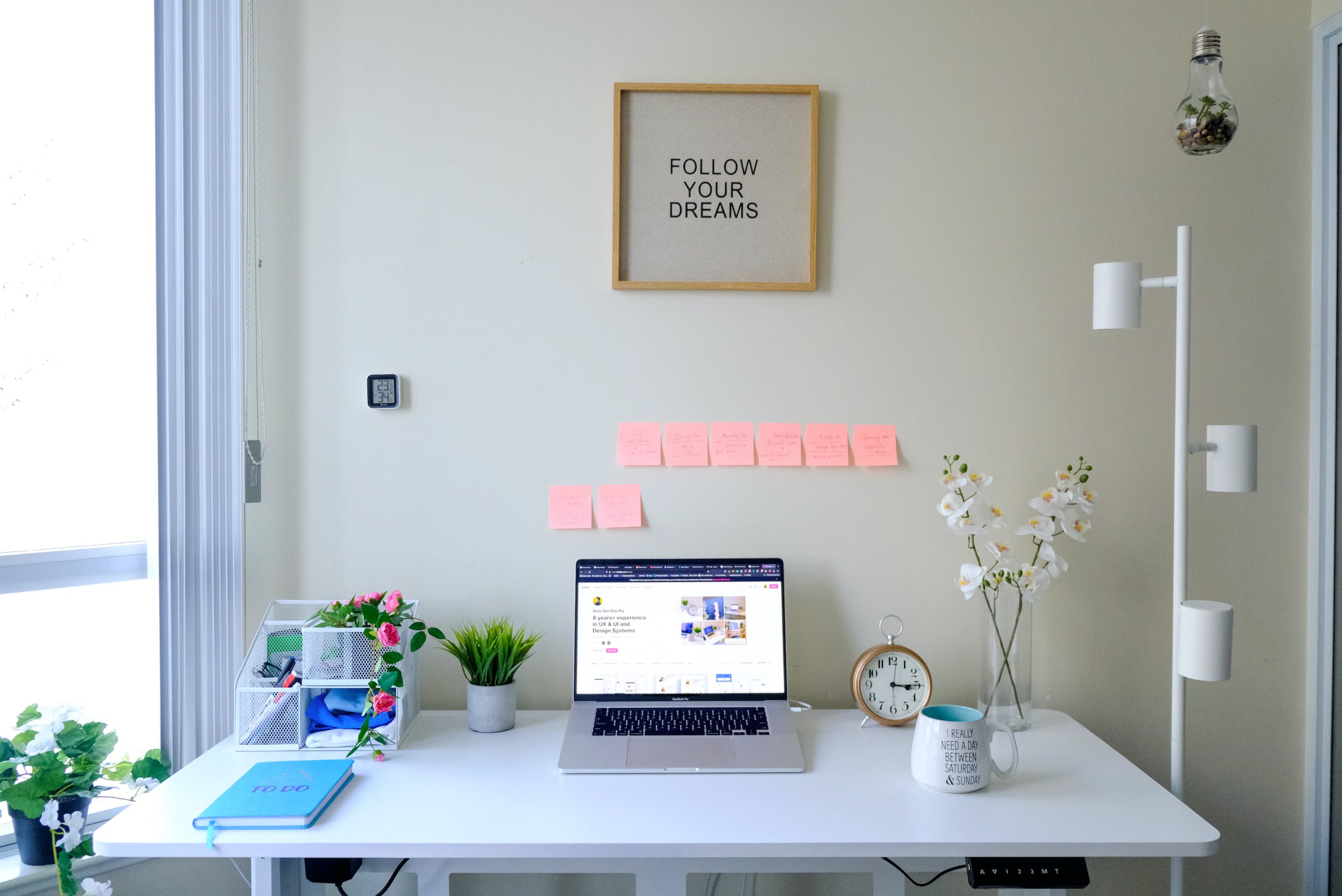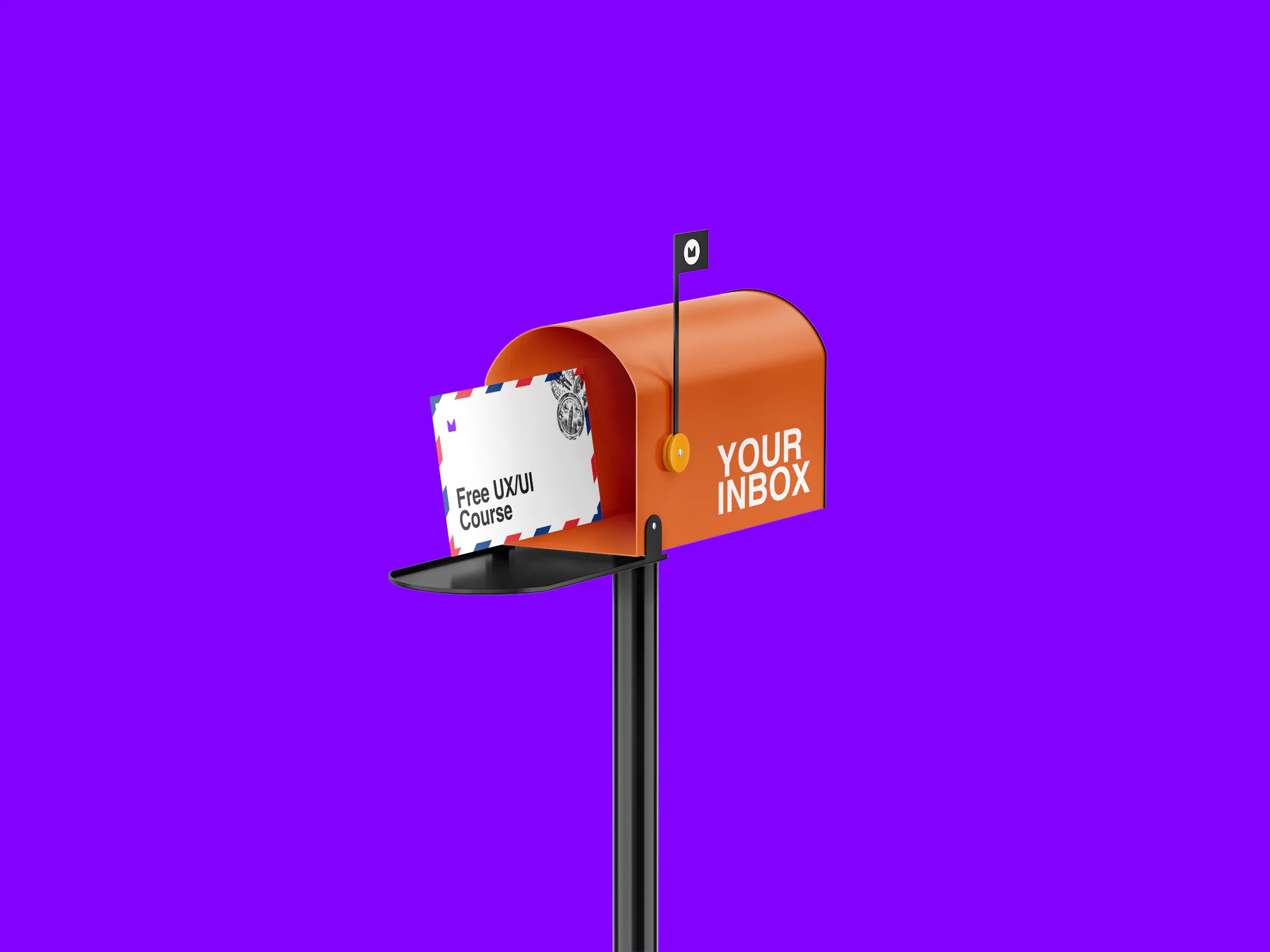

Get a Free UX/UI Course in Your Inbox Every Day for 15 Days
By the end of this three-week crash course, you'll have a much better understanding of the tech industry, the design craft, and all the knowledge you need to start building your career.

Get a Free UX/UI Course in Your Inbox Every Day for 15 Days
By the end of this three-week crash course, you'll have a much better understanding of the tech industry, the design craft, and all the knowledge you need to start building your career.

Yes, you absolutely can succeed in design! 🎉 I'm eager to share not just why, but also how. 😎
Lately, I've spoken with many aspiring designers. A common concern is their lack of a traditional design background, which they fear puts them at a disadvantage compared to more experienced peers. Here's a secret: Consistency and drive are what truly matter, and these qualities aren't tied to any specific background. The challenge is that few people are ready to make the necessary effort. But let's focus on the positive: You can cultivate consistency, motivation, and proactivity, regardless of your past experience or education.
"Okay, Raluca," you might say, "I'm doing all that, but I still feel like I'm lacking something. It's disheartening to hear about the advantages of a graphic design background or to see psychology majors entering the field." While prior knowledge is beneficial, it's not the be-all and end-all.
Many architects find a natural transition to UX Design. As an architect, you're trained in visual hierarchy, understanding proportions, and creating compositions. You begin with minimal information and transform it into a tangible concept, a living space centered around human needs. This process of blending functionality with aesthetics and tackling daily constraints mirrors the core responsibilities of a UX Designer. Additionally, your experience in cross-team collaboration and translating concepts into reality parallels the collaboration between UX designers and developers. You've likely honed the ability to clearly articulate your decisions to engineers and clients, a critical skill in UX.

Entrepreneurs, irrespective of their industry, embody a passion for business and innovation. Running a business, big or small, requires critical thinking and decision-making under pressure. Entrepreneurs rarely have it easy, and this resilience is a core skill. In UX Design, entrepreneurs often become invaluable allies to clients because they understand their challenges firsthand. Their adaptability to change and understanding of necessary compromises are strengths. Entrepreneurs possess a unique blend of business insight and a commitment to user satisfaction, balancing business objectives with user needs, a skill that often takes time for others to develop.
My journey from finance to UX revealed the overlap of skills between these fields. With a background in economics, I initially believed a complete career reset was needed for UX. Yet, as I delved into UX, I found that skills from my finance experience were surprisingly relevant. In audit and business consultancy, I developed business acumen and a keen sense of numbers and sales. Negotiating contracts and handling high-stakes discussions honed my communication skills, which are invaluable in UX. Explaining complex concepts to clients in UX is akin to discussing financial risks and strategies. Working in finance also provides a deeper understanding of the business side, fostering empathy with clients and balancing user needs with business goals.

Healthcare professionals, whether doctors, nurses, or other roles, excel in empathy, a cornerstone of UX Design. Their experience in dealing with a diverse range of human emotions and conditions translates well into understanding user needs. The ability to remain calm under pressure, communicate effectively, and handle sensitive situations are skills that give healthcare professionals an edge in UX. Additionally, the ethical considerations and accountability ingrained in healthcare work ensure a strong work ethic and responsibility in UX design decisions.

Professionals in hospitality are adept at managing multiple tasks and excelling in customer service. Their ability to understand and cater to customer needs, often in fast-paced environments, is directly applicable to UX Design. In hospitality, you learn to communicate effectively with various teams – from management to kitchen staff – ensuring a seamless customer experience. This skill of aligning different teams and working collaboratively is crucial in UX, where you often have to coordinate with designers, product managers, and developers to create a cohesive user experience.
Journalists have a unique skill set that is highly relevant to UX Design. A significant part of a designer's role involves communicating design decisions, a skill where journalists excel. Their ability to gather information, articulate a narrative, and engage an audience is crucial in presenting design ideas and concepts. In journalism, asking the right questions to uncover the truth is analogous to identifying user needs and problems in UX. Journalists are often accustomed to working under pressure, receiving feedback, and interacting with diverse individuals, all of which are valuable in the UX field.
Remember, this list isn't exhaustive. Every industry offers unique advantages; it's about leveraging them effectively. Before your next UX interview, reflect on your skills. Use this article as inspiration, and remember: Don't downplay your experience. Instead, demonstrate how your unique skill set can contribute to UX. It's all about positioning yourself and valuing your hard-earned experience.